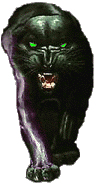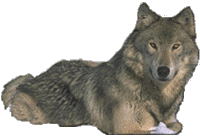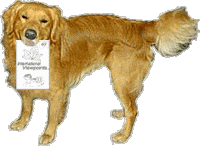

| [[NOTE]]From "The Heretic", Issue 12, May 31, 1987. Earlier in the history of "The Heretic" policy was that all authors used pseudonyms. This was possibly because active free scientologists in the USA were more subject to attacks and embarrassemnts from the church than has been the case in Scandinavia. Ed. [[I later found out that it was to avoid people prejudging the article because they knew (good or bad) about the author. Ant 3.sept.94]] |

|
One possible explanation for the Church's persistent world view of US vs. THEM, borne out by continual attacks, etc. when TRs and ARC (for those not familiar with the more sane face of Scientology, this briefly means friendliness. Editor Nov. 96.) would handle most situations, can be found in the Tech Dictionary under "Black Panther Mechanism," which outlines the possible methods for coping with the environment. (DMSOMH, Book 2, Chapter ix, however the same idea also appears in Hubbard's "The Original Thesis" with the words "There are five ways that the organism can react to a danger in it's vicinity". Editor Nov. 96.) Anything that prevents Gus from getting upstairs can, by this definition, only be handled by attack, flee, avoid, neglect or succumb. While this certainly is quite an improvement over the psych's "fight or flight" response, it still is missing vital viewpoints. The selection of "a particularly black-tempered black panther" as a model and placing him in the artificial environment of a home obscures other options. Just in case the Gentle Reader might try to think up any other option, the definition goes on to say: "All actions can be seen to fall within these courses." Where some see only problems, others see solutions or opportunities. I propose a new name and definition. 1. he could attack the grey wolf, |

|
Recognizing that the problem is not the wolf, that the problem is staying alive in the woods, and that the wolf shares the problem, allows the man and the wolf to form an alliance. The wolf brings his intelligence, keen sense of smell and swiftness to the bargain. Sam adds his intelligence, thumb, "ability to use tools" and fire. Together, they survive much better than either could alone. Indeed, over time, what could just as easily have been Sam's worst enemy, turns into "man's best friend." This blind spot on cooperation is clearer in the definition of ally in the "Tech Dictionary." According to these definitions, an ally is someone who helps you when you are weak (and we are never weak, are we?), and is someone whose beingness takes over the PC. In other words, that with which you ally, you alloy. An ally is something found in reactive engrams, not in analytical thought. So now, what can or should be done about this? Perhaps an auditing rundown or series of drills could be developed to bolster the being's ability to recognize situations where cooperation is appropriate and to exercise that option. A model Grey Wolf process might start off with word clearing on the above definition. This could be followed by having the PC spot times when cooperation could have occured, should have occured, would have occurred or did occur (a "coulda, shoulda, woulda" rundown). R3R any reading items in order of read. Perhaps this could be played against the CDEINR scale, the Know-to- Mystery Scale or the Prepcheck Buttons. Another possibility would be to have the PC spot the shared problem on the coulda, shoulda, woulda rundown. This kills the wrong targeting on the grey wolf terminal. This, of course, is only a rough outline. I invite you to generate and test other rundowns that smooth over a PC's handling of his environment. |

